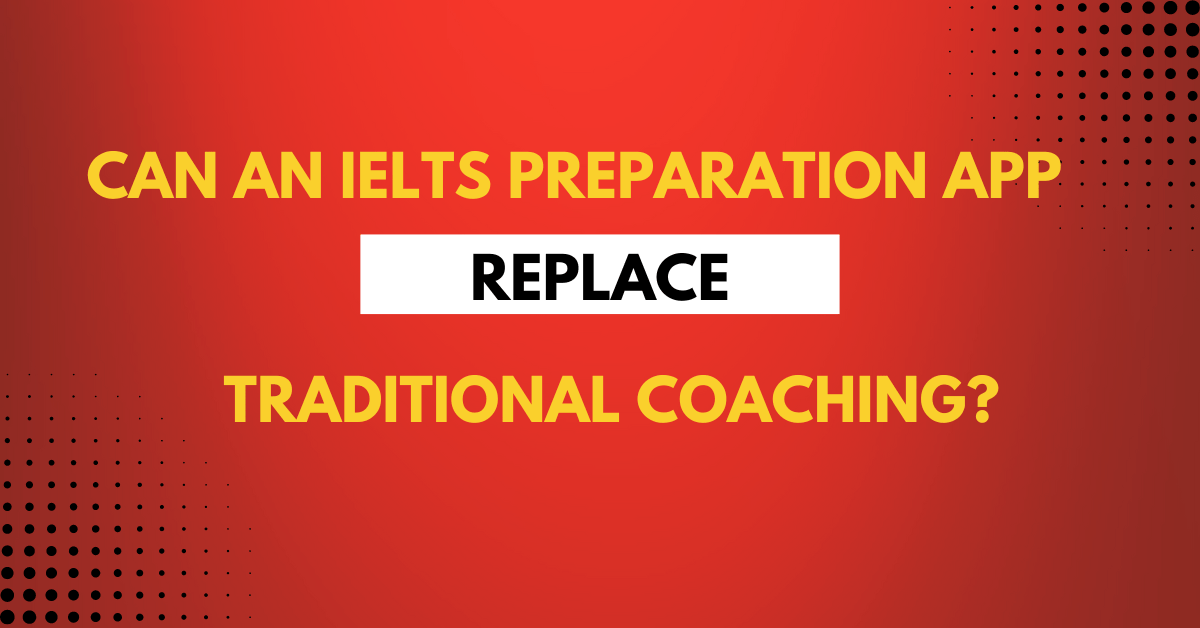Let’s face it—life is hectic, and finding the time to attend regular IELTS classes can feel like squeezing water from a stone. Enter the IELTS preparation app: sleek, convenient, and packed with features promising to help you ace the exam. But here’s the burning question: can these apps truly replace the tried-and-true traditional coaching? Let’s unravel the truth behind this digital versus classroom debate.
The Appeal of IELTS Preparation Apps: Why Everyone’s Talking About Them
IELTS preparation app are on the rise, and it’s easy to see why. They offer a modern approach to learning that seems tailor-made for our fast-paced lives. But are they really the game-changers they claim to be?
- Study Anywhere, Anytime—Literally: Imagine prepping for the IELTS while waiting for your coffee, during your commute, or in the comfort of your bed. IELTS apps make it possible. The flexibility to study whenever and wherever you want is a massive plus for busy individuals who can’t commit to rigid class schedules.
- Learning That Adapts to You: Ever wish your learning material could just ‘get’ you? Many IELTS apps use AI to do just that, adapting to your learning speed, focusing on your weak spots, and pushing you in the right direction. It’s like having a study buddy who knows exactly what you need.
- Save Your Wallet: Let’s be real—traditional IELTS coaching can burn a hole in your pocket. In contrast, apps are typically much more affordable, with some offering free versions that are surprisingly robust. For those on a budget, this makes apps a very tempting option.
- Instant Gratification: Waiting for feedback from a teacher can feel like an eternity, especially when you’re itching to improve. Apps often provide instant feedback on your practice tests and exercises, giving you the power to correct mistakes on the spot.
The Other Side of the Coin: Where IELTS Apps Might Fall Short
While IELTS apps offer some undeniable perks, they also come with limitations that could be deal-breakers depending on your needs.
- No Substitute for a Real Teacher: As smart as these apps are, they can’t replace the wisdom and guidance of a seasoned teacher. Traditional coaching gives you access to expert insights, personalized strategies, and in-depth explanations that apps simply can’t match.
- Interaction? Not So Much: Learning is not just about absorbing information—it’s about engaging with it. In a classroom, you can ask questions, participate in discussions, and get immediate clarification. With apps, the interaction is usually one-sided, which might leave you feeling a bit lost on more complex topics.
- The Discipline Dilemma: Here’s the thing—studying on your own requires a lot of self-discipline. Without the structure and accountability of a traditional class, it’s easy to slack off or get distracted. Traditional coaching, with its regular schedule and deadlines, helps keep you on track.
- Speaking of Speaking…: The speaking section of the IELTS is where many students stumble, and for good reason—it’s tough! While apps can help with pronunciation and vocabulary, they can’t fully replicate the experience of practicing with a real person. In a traditional coaching setting, you get to practice speaking in a supportive environment, which is crucial for building confidence.
The Sweet Spot: Blending Both Worlds
The truth is, you don’t have to choose between an IELTS app and traditional coaching—you can have the best of both worlds.
- Use Apps to Complement Your Coaching:
Think of IELTS apps as your on-the-go toolkit. Use them to reinforce what you’ve learned in class, fit in extra practice, and identify where you need more help. - Traditional Coaching for the Deep Dive:
Enroll in traditional coaching to get the personalized guidance and hands-on practice that apps can’t fully provide. It’s where you can ask those tricky questions and get feedback that’s tailored just for you. - Consider Online Tutoring:
If attending in-person classes isn’t feasible, online tutoring could be your golden ticket. It combines the convenience of digital learning with the interactive, personalized touch of traditional coaching.
Final Thoughts: What’s the Best Path for You?
When it comes to preparing for the IELTS, there’s no one-size-fits-all answer. It all boils down to your personal learning style, your goals, and your life circumstances. For some, the convenience and affordability of an app might be all they need. For others, the depth and structure of traditional coaching are irreplaceable.
So, why not blend both approaches? Use the power of an app to supplement the rich experience of traditional coaching, or mix in online tutoring for a personalized touch. Remember, the goal is not just to work hard but to work smart—so choose the path that aligns with your needs and gives you the best shot at IELTS success.


